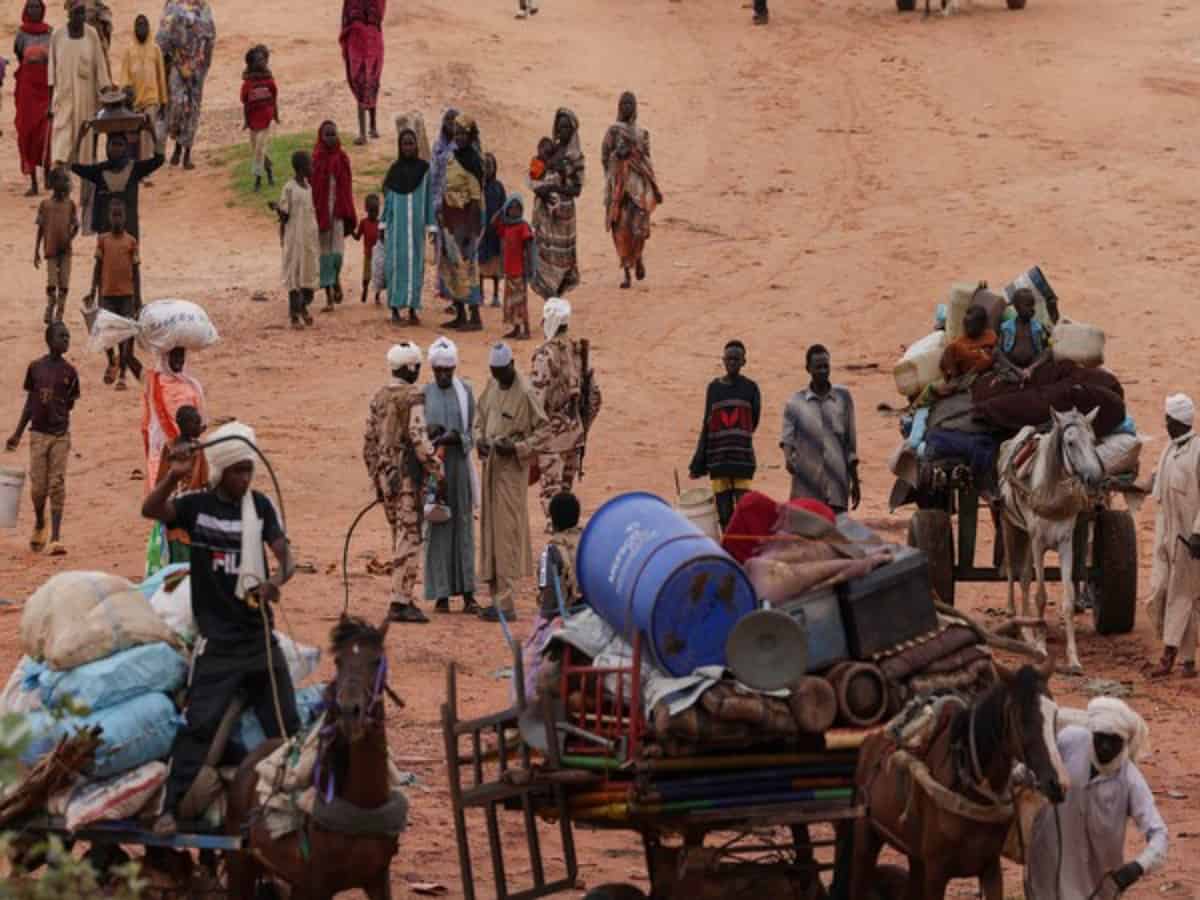
Washington: The United States, Saudi Arabia and the Intergovernmental Authority for Development (IGAD) reconvened ceasefire talks between the Sudanese Armed Forces (SAF) and the Rapid Support Forces (RSF), US Department of State has announced.
The US thanked Saudi Arabia for hosting the talks and welcomed IGAD, which is participating on behalf of the African Union as a co-facilitator. The talks will not address broader political issues, according to the statement released by US Department of State spokesperson Matthew Miller.
Matthew Miller in a statement said, “Consistent with the May 11 Jeddah Declaration of Commitment to Protect the Civilians of Sudan, the reconvened talks continue to have a narrow set of objectives – to facilitate the delivery of humanitarian assistance, establish ceasefires and other confidence-building measures, and build toward a permanent cessation of hostilities.”
Miller noted, “Sudan’s civilians must be the ones to define Sudan’s path going forward and play the leading role in defining a process to address political issues and restore Sudan’s democratic transition.”
According to the statement, the US has repeatedly made clear that there is no acceptable military solution to this conflict. The US has called upon the Sudanese Armed Forces (SAF) and the Rapid Support Forces (RSF) to approach talks constructively with the imperative to save lives and reduce the fighting.
In the statement, Matthew Miller stated, “We call upon the SAF and RSF to approach the talks constructively, with the imperative to save lives, reduce the fighting, and create a path to a negotiated exit from the conflict.”
“The United States continues to call on all external actors to avoid fueling the conflict. The time has come to stop the senseless violence, resume civilian governance, and let the people of Sudan achieve their demands for freedom, peace, and justice,” he added.
Earlier in September, at least 40 people were killed in a drone attack on an open market south of the Sudanese capital, as the military and the paramilitary Rapid Support Forces (RSF) battle for control of the country, reported Al Jazeera.
The resistance committees and two healthcare workers at the Bashair University Hospital said that at least 70 others have been injured in Khartoum’s Mayo neighbourhood. Reportedly, the drone attack was carried out by the Sudanese Army, reported Al Jazeera, and added that it is not clear whether all the victims were civilians, but “there is a dire need for medical assistance for those who have been injured”.
The casualties were treated at the Bashair University Hospital. Furthermore, the committees shared footage of bodies wrapped in white sheets in an open yard at the hospital on social media platforms.
Indiscriminate shelling and air attacks by both factions have become common in Sudan’s war which has reduced the greater Khartoum area to a battleground, Al Jazeera reported. Sudanese Army head General Abdel Fattah al-Burhan stressed that the army welcomes initiatives including the Jeddah Forum but will not allow “any unacceptable interference”.
Sudan has been witnessing violent attacks since mid-April as the tensions between Sudan’s military, led by al-Burhan, and the RSF, commanded by General Mohamed Hamdan Dagalo, burst into open fighting, reported Al Jazeera.
Earlier in August, the United Nations voiced grave concerns over the civil war in Sudan saying it is “spiralling out of control”, as more than a million people have left the country for neighbouring nations since April as fighting between two warring factions has turned the country into a war zone, according to CNN.
In the middle of April, fierce fighting broke out between the Sudanese army and the paramilitary Rapid Support Forces (RSF), resulting in a large-scale exodus of refugees from the nation in East Africa, where allied militias have been charged with crimes against humanity after allegations of killing civilians, looting homes, and ethnic cleansing.
(Except for the headline, the story has not been edited by Siasat staff and is published from a syndicated feed.)
